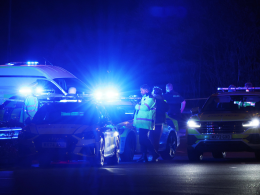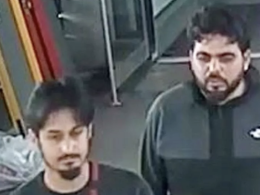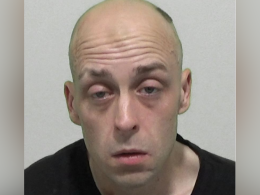A British teenager who was jailed in Dubai over a holiday relationship and freed three months ago has died in a car crash in north London, according to police and the campaign group that supported his case. Marcus Fakana, 19, from Tottenham, was confirmed dead after a vehicle in which he was a passenger collided with another car in Tottenham in the early hours of Friday, with the Metropolitan police saying a 19-year-old passenger suffered “significant injuries” and died shortly after arriving at hospital. Officers said the car had failed to stop for police moments earlier during a brief pursuit and that the Independent Office for Police Conduct had been informed as a matter of routine. The driver, also 19, was arrested on suspicion of dangerous driving and failing to stop and remained in custody. Formal identification has not been released by police.
Detained in Dubai, the UK-based advocacy organisation that campaigned for Fakana during his detention in the United Arab Emirates, identified him as the victim and said staff and supporters were “heartbroken” at the news. Its founder and chief executive, Radha Stirling, wrote that “our client and friend, Marcus Fakana, tragically lost his life in a car accident in Tottenham after his release from Dubai jail,” adding: “His loss is a painful reminder of how precious life is and how unnecessary imprisonment robs people of time they can never regain. Every day of freedom matters.” The group said it would not comment further on family arrangements.
Police said officers on patrol had attempted to stop a “vehicle of interest” on Pretoria Road, Edmonton, at about 00:52 on Friday. After a short pursuit “of approximately 60 seconds”, the car was briefly lost from view. A patrol then came upon a crash scene on The Roundway, Tottenham, where the vehicle in which Fakana was travelling had collided with another car. Officers and ambulance crews provided first aid but the passenger died a short time after reaching hospital. No other injuries were reported. Witnesses and motorists with dash-cam footage were urged to contact detectives citing reference CAD 214/03OCT.
Fakana’s death comes little more than three months after he returned to Britain following a royal pardon in Dubai. He had been sentenced in December to one year in prison after prosecutors charged him with having sex with a 17-year-old British girl he met while both families were on holiday in the emirate. In the UAE, sexual activity with anyone under 18 is criminalised, even if the other person is also a foreign national and the conduct would not constitute an offence in the home country. Fakana was 18 at the time of his arrest; the girl, from London, later turned 18. Campaigners argued that the case highlighted a gulf between Dubai’s tourist branding and the realities of its criminal code for visitors.
The case drew sustained attention in Britain. In reporting that followed the December sentencing, Stirling called the outcome “an utter disgrace” and “an embarrassment to Britain”, accusing ministers of failing to use their influence to press for clemency. Detained in Dubai said the teenager “feels abandoned by the British government and Keir Starmer” and urged the public to avoid Dubai “until Marcus is free.” The Foreign, Commonwealth and Development Office said at the time it was supporting a British national in the UAE and was in contact with his family.
Protesters later marched from Parliament Square to Downing Street in early January, carrying banners calling for Fakana’s release and criticising what organisers described as excessive punishment for a tourist whose partner was only months shy of the UAE threshold. Campaigners said he had spent days without contact with his parents when first detained and had been held in difficult conditions before transfer to prison. A petition drew tens of thousands of signatures and a public fundraiser contributed tens of thousands of pounds toward legal costs.
On 7 July Detained in Dubai announced that Fakana had received a royal pardon from Dubai’s ruler, Sheikh Mohammed bin Rashid Al Maktoum, and had arrived safely back in the UK. In a statement quoted by the Evening Standard, Stirling said he was “currently recovering” and argued the case underscored “the urgent need for expedited legal processes for foreign nationals and safeguards against unnecessary custodial sentences.” The organisation said then that he hoped to resume a normal life with his family after months of uncertainty.
The pardon concluded a sequence that began when Fakana, on holiday with his parents from late August last year, met the London teenager and began a brief relationship. After the families returned to the UK, the girl’s mother reviewed messages and images on her daughter’s phone and contacted Dubai police. Fakana was subsequently detained at his hotel on his next trip, held without contact for several days, and later sentenced. The Guardian reported that his supporters asked the Dubai ruler to show clemency and that a bail demand of 10,000 dirhams had been set earlier in the process, with accommodation costs mounting as he awaited developments. (The Guardian)
In the weeks after returning home, Fakana made limited public comment as his family sought privacy. Advocacy updates noted only that he was grateful for support during the campaign and was resting. The circumstances of the crash in which he died remain under investigation. Police said as is standard practice the Met’s Directorate of Professional Standards had been notified, and the Independent Office for Police Conduct had been informed because the collision followed a brief police pursuit.
The Metropolitan police appeal describes a straightforward timeline leading up to the collision: the attempted stop on Pretoria Road, a pursuit that lasted about a minute, the temporary loss of the vehicle, and the discovery of the wreckage minutes later on The Roundway. The force said emergency medics and officers did all they could to stabilise the passenger at the roadside and in hospital. The driver’s name has not been released. Detectives in north London asked anyone who saw the cars in the area before the crash, or who captured images on doorbell or dash-cam systems, to come forward.
Dubai’s legal framework sets a bright-line standard for sexual conduct that has previously caught out foreign visitors. While the UAE has enacted reforms in recent years, including decriminalising sex outside marriage for adults in some circumstances, the law continues to criminalise sexual activity with anyone under 18 and gives prosecutors latitude to pursue cases initiated by family complaints. In public remarks last year, Stirling urged young Britons to consider those rules carefully before travelling, saying “holidaymakers should book elsewhere” when cases like Fakana’s show the risk of custodial sentences for conduct that might not be prosecuted at home. The Guardian quoted her at the time as warning that “the Labour government should be ashamed they have not secured the freedom of a teenage tourist,” language that set the tone for the campaign through the winter. (The Guardian)
The pardon in July allowed Fakana to leave Al Awir prison—one of Dubai’s main detention facilities—and travel back to London. Detained in Dubai’s statement that day said he had been officially pardoned and thanked supporters, lawyers and back-channel interlocutors. The Evening Standard reported that he had reached the UK and relayed the campaign group’s view that his case illustrated the need for faster processes when foreign nationals are charged under laws they may not fully understand.
News of Fakana’s death prompted fresh tributes on social media on Friday from those who had followed his case. Detained in Dubai’s short statement identifying him as the casualty stayed focused on condolences and the brevity of his freedom rather than on the crash itself. A number of public posts expressed shock that a teenager whose story had drawn national attention and achieved a clemency result in summer had died within weeks of his return. The advocacy group said only that it was supporting the family and would not be making further comment while police inquiries were under way.
At the crash scene, police said there were no other reported injuries. The investigation will look at the minutes before the collision and at why the driver failed to stop when signalled. The IOPC, which oversees incidents involving police contact, routinely assesses whether any aspect of an attempted stop or pursuit requires scrutiny under its statutory remit. The Met said its own professional standards directorate had been told in line with procedures. Officers emphasised the appeal for witnesses and footage as they worked to establish a full picture of events.
Fakana’s detention had become a touchstone for campaigners who argue that the UK should adopt a more muscular approach when citizens are imprisoned overseas under laws that criminalise sexual behaviour, speech or personal conduct that would not be offences at home. Demonstrators who marched in January called for stronger foreign-office engagement in such cases. With his return in July, that campaign shifted from calls for diplomatic pressure to a quieter message about rehabilitation and recovery. Friday’s confirmation of his death from injuries sustained in the Tottenham collision closed that chapter abruptly and left supporters appealing for privacy for his family.
Police gave no timeline for when a fuller update might be released. In fatal collisions, formal identification, postmortem examinations and forensic collision reports can take days or weeks. The Met said the victim’s next of kin had been informed. As of Friday evening, the force had not released a name and asked the public to direct information to north-area traffic investigators on the reference provided. Detained in Dubai said it would share funeral details only at the family’s request.
For those who followed the case from arrest to pardon, the milestones are stark: a holiday meeting late last summer, a rapid escalation into custody and a one-year sentence in December, a public campaign and street protest in January, a royal pardon and homecoming in July, and a fatal crash in October. The details of the collision remain to be established by police and independent investigators; what is confirmed is that a 19-year-old passenger died after a brief fail-to-stop pursuit, that a driver was arrested, and that the teenager identified by the group that fought for his freedom abroad did not live long to enjoy it.










